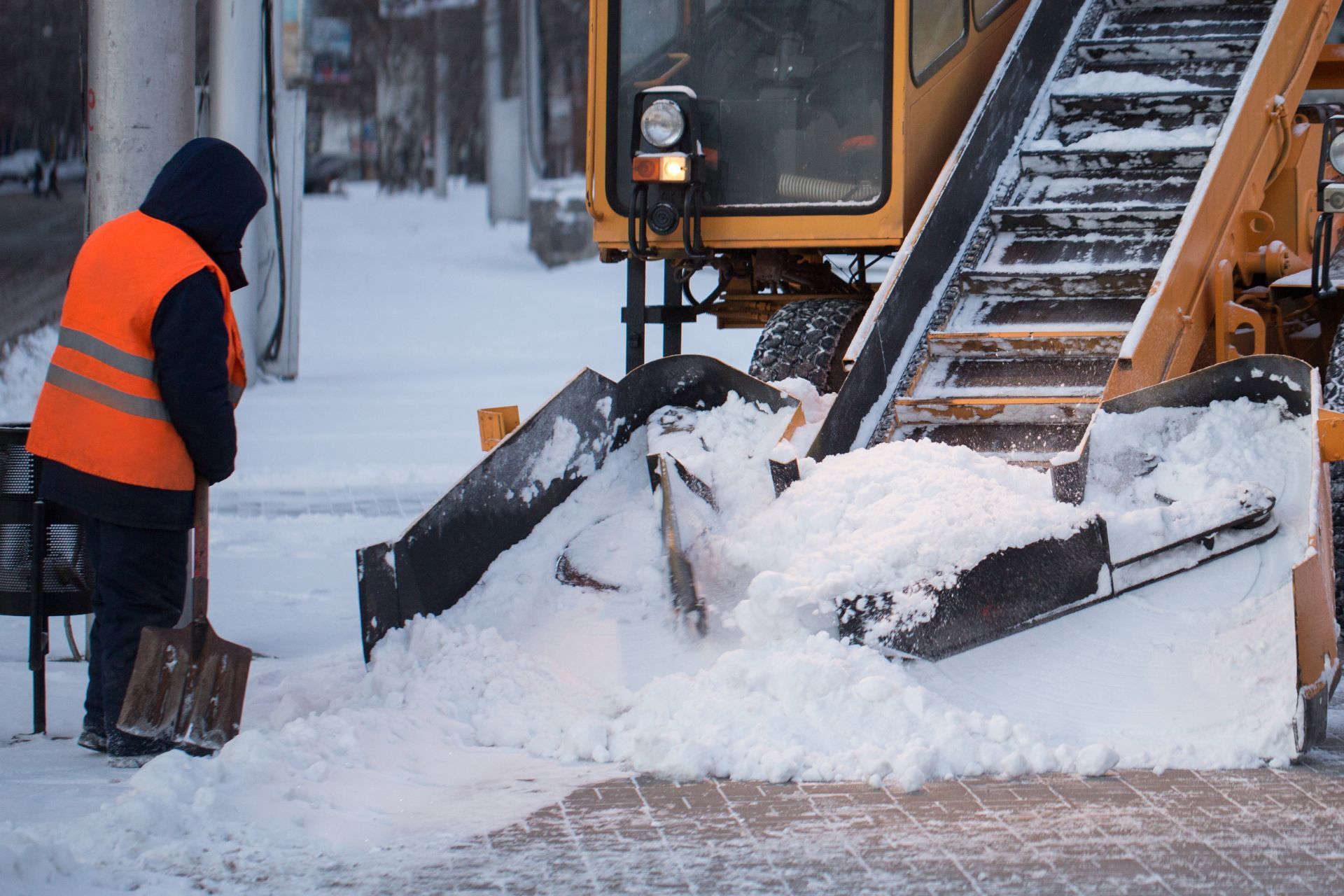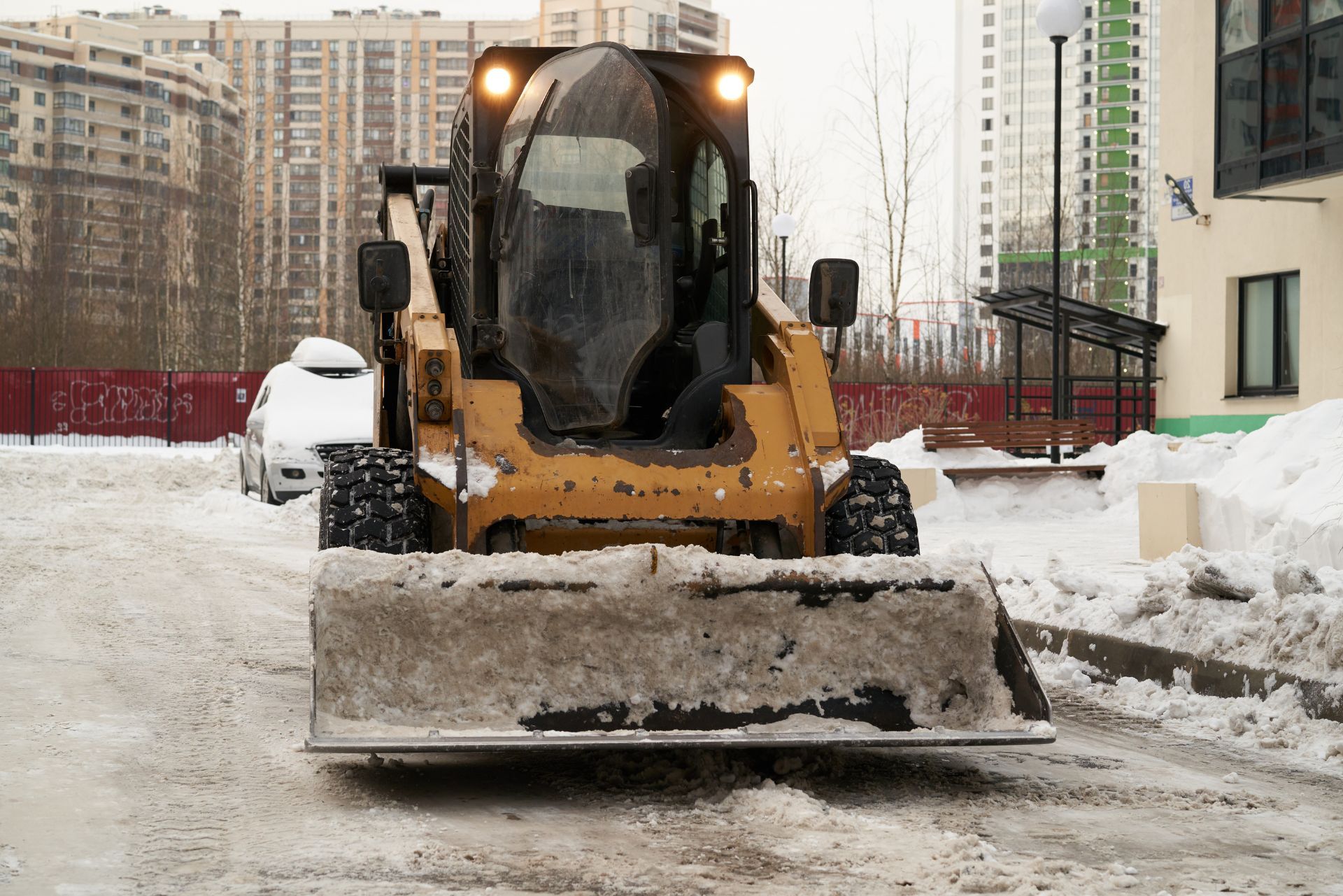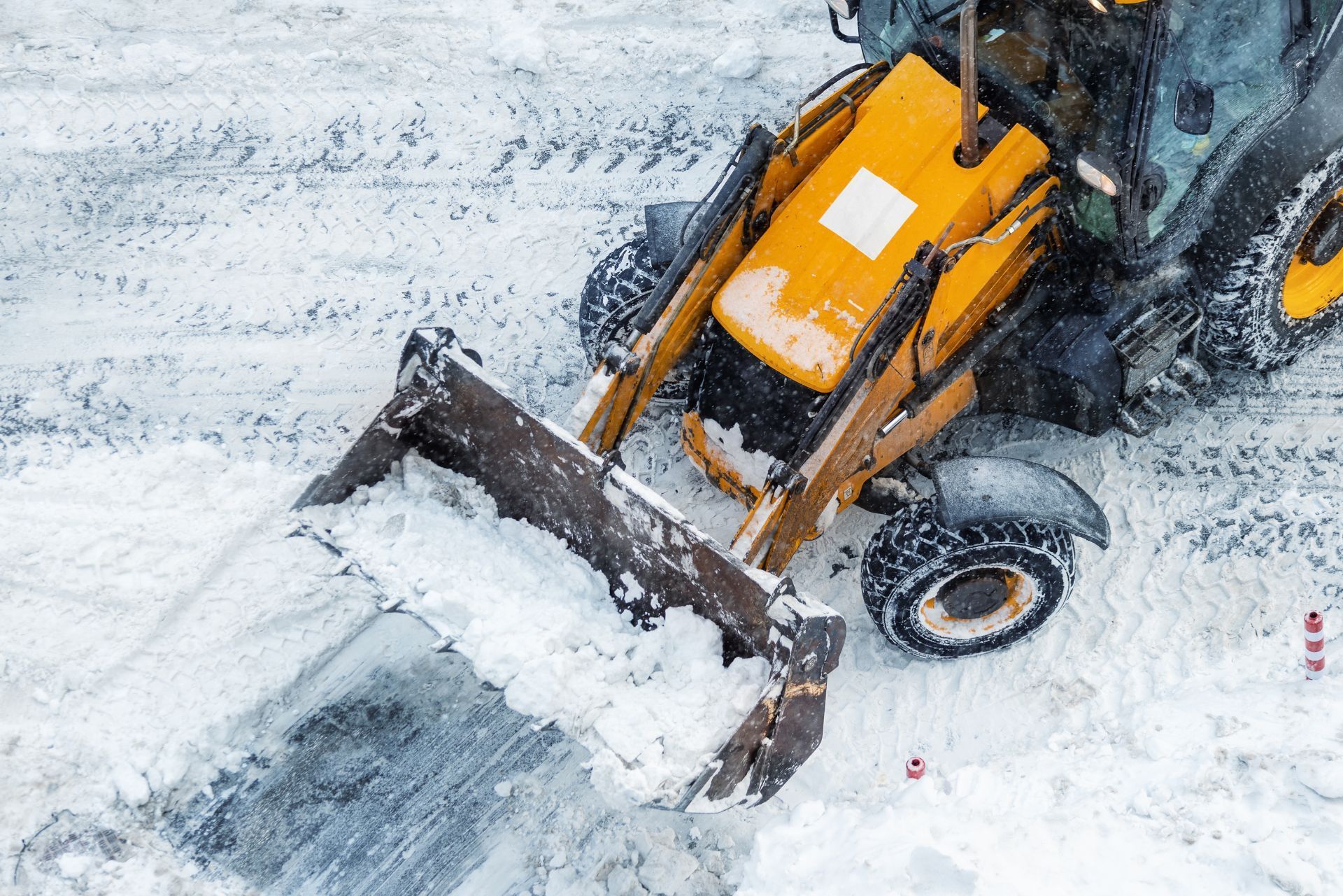
Index
Why Insurance Matters for Michigan Snow Removal Businesses
Essential Types of Insurance Coverage for Snow Removal Businesses
Market Trends Affecting Snow Removal Business Insurance in Michigan
Managing Risks and Reducing Insurance Costsd
What Snow Removal Business Owners Should Know About Michigan Weather Patterns
Insurance Coverage Comparison for Snow Removal Businesses
Snow removal businesses in Michigan face unique challenges every winter. From heavy snowfalls to icy conditions, these companies operate in an environment where unpredictable weather can quickly turn routine jobs into costly claims. With Michigan’s property claim frequency rising by about 25% over the past five years, understanding the right insurance coverage is more important than ever for snow removal operators to protect their investments and stay afloat during tough seasons. GCB Insurance highlights this surge, reflecting the growing risks tied to harsh winters and property damage.
Insurance for snow removal businesses is not just a safety net-it’s a critical part of managing risks in a state where snowstorms of over five inches happen three or four times annually. This article breaks down the essentials of Michigan snow removal business insurance, helping you navigate coverage options, understand market trends, and prepare for the unexpected.
Why Insurance Matters for Michigan Snow Removal Businesses
Snow removal companies deal with more than just clearing driveways. They face liabilities ranging from property damage to bodily injury. Imagine a slip-and-fall accident on a freshly plowed parking lot or damage to a client’s landscaping during snow clearing. Without proper insurance, these incidents can lead to expensive lawsuits or claims that threaten the business’s survival.
Michigan’s winter weather is notoriously harsh. Anita Fox, Director of the Michigan Department of Insurance and Financial Services, warns that “winter weather can bring heavy snow, high winds, and freezing temperatures, so taking precautions to reduce property damage should be part of everyone’s winter preparedness checklist.” This advice extends directly to snow removal businesses, which must protect themselves against the financial fallout of winter-related accidents and damages. Michigan.gov emphasizes the importance of reviewing insurance policies before the storm season hits.
Moreover, the rising cost of insurance in Michigan adds urgency to securing the right coverage. Homeowners insurance rates alone are expected to spike 14% in 2024, with the state ranking third nationally for the highest rate increase. While commercial insurance rates for businesses like snow removal have seen more moderate increases, the trend points upward. Crain’s Grand Rapids Business connects these hikes to climate change and inflation, factors that also impact snow removal companies.
In addition to liability coverage, snow removal businesses should consider investing in specialized insurance policies that cater to their unique needs. For instance, equipment insurance can protect against damage or theft of expensive machinery, such as snow plows and salt spreaders. Given the high costs associated with these tools, having the right coverage can mean the difference between staying operational or facing significant financial strain after an incident. Furthermore, businesses should also look into business interruption insurance, which can provide essential support in case of unforeseen events that halt operations, such as equipment failure or severe weather conditions that prevent work from being completed.
Furthermore, the importance of comprehensive training for employees cannot be overstated. Ensuring that all staff are well-versed in safety protocols and proper equipment handling can significantly reduce the likelihood of accidents and subsequent claims. Regular training sessions not only enhance safety but also foster a culture of accountability and professionalism within the company. This proactive approach can lead to lower insurance premiums over time, as insurers often reward businesses that demonstrate a commitment to risk management and employee safety. By investing in both insurance and employee training, snow removal companies can build a robust framework for success during Michigan's challenging winter months.
Essential Types of Insurance Coverage for Snow Removal Businesses
Understanding the core insurance policies available can help snow removal businesses tailor protection to their specific risks. Here are the key coverages every operator should consider:
General Liability Insurance
This coverage protects against third-party claims of bodily injury or property damage. For example, if a client or passerby slips on an icy sidewalk after snow removal, general liability insurance can cover medical expenses and legal fees. Given the frequency of snowstorms in Michigan, this is a must-have policy. Additionally, it can also cover claims arising from advertising injuries, such as if a competitor alleges that your marketing materials misrepresent your services. This broad protection ensures that your business can operate with peace of mind, knowing that unforeseen incidents won't lead to financial ruin.
Commercial Auto Insurance
Snow removal businesses rely heavily on trucks, plows, and other vehicles. Commercial auto insurance covers accidents involving these vehicles, whether it’s damage to the equipment itself or injury caused to others. With winter roads often slick and hazardous, this coverage is critical. Moreover, this insurance can also extend to cover the cargo being transported, such as snow removal equipment or supplies, which can be particularly valuable during peak seasons when demand is high. Ensuring that your vehicles are adequately insured not only protects your assets but also enhances your reputation as a reliable service provider.
Equipment and Property Insurance
Snow removal equipment is expensive and essential for operations. Insurance policies that cover damage, theft, or loss of equipment help businesses avoid costly replacements. Additionally, property insurance protects business premises from winter-related damages such as roof collapses under heavy snow. Furthermore, some policies may offer coverage for business interruption, which can be crucial if severe weather prevents operations for an extended period. This aspect of coverage can help maintain cash flow and support ongoing expenses, ensuring that your business can bounce back quickly after a storm.
Workers’ Compensation Insurance
Employees working in cold, slippery conditions face increased risks of injury. Workers’ compensation insurance covers medical costs and lost wages if an employee is hurt on the job. This coverage is often legally required and vital for protecting your team and business. In addition to covering injuries, many workers' compensation policies also provide rehabilitation services to help employees recover and return to work more quickly. This not only fosters a safer work environment but also demonstrates a commitment to employee well-being, which can enhance morale and retention in a challenging industry. Moreover, investing in safety training programs can further reduce the likelihood of accidents, potentially lowering insurance premiums over time.

Market Trends Affecting Snow Removal Business Insurance in Michigan
Insurance markets are shifting, influenced by broader economic and environmental factors. For snow removal companies, these trends translate into changes in premiums and coverage availability.
While commercial insurance rates in the U.S. rose by 3.8% in the second quarter of 2025, this marks a slowdown compared to previous quarters, signaling some relief for business owners. WTW’s Commercial Lines Insurance Pricing Survey notes this easing trend, but premiums remain elevated compared to years past.
Andrew Hoffman, a professor at the University of Michigan, explains that the insurance industry is increasingly impacted by “secondary perils” - smaller but more frequent events that accumulate damage over time. For snow removal businesses, this means insurers are wary of repeated claims from winter weather incidents, driving up costs and tightening underwriting standards. Crain’s Grand Rapids highlights how these factors ripple across both home and auto insurance markets.
Demand for snow removal services is also growing. In 2024, snow removal accounted for 40.9% of the market share in related service industries, reflecting increased business activity during Michigan winters. This growth means more companies entering the market, which can affect insurance pricing and competition. Market.us provides insight into this expanding market segment.
In addition to the rising demand, the increasing unpredictability of winter weather patterns has also played a significant role in shaping the snow removal landscape. With climate change contributing to more severe winter storms, snow removal companies often find themselves on the front lines, facing the dual challenge of meeting heightened demand while managing the risks associated with unpredictable weather. This volatility can lead to spikes in operational costs, as companies must invest in more equipment and personnel to handle the increased workload during peak seasons.
Moreover, the competitive landscape is evolving as technology becomes more integrated into snow removal operations. Companies are now leveraging advanced forecasting tools and GPS tracking systems to optimize their routes and improve efficiency. These innovations not only enhance service delivery but also have implications for insurance underwriting, as insurers may view tech-savvy operations as lower risk due to their ability to respond promptly to changing conditions. As businesses adapt to these trends, understanding the interplay between technology, demand, and risk management will be crucial for navigating the complexities of insurance in the snow removal industry.
Managing Risks and Reducing Insurance Costs
Insurance premiums are influenced by risk. Snow removal businesses that actively manage and mitigate risks can benefit from lower costs and better coverage options.
Start with thorough employee training focused on safe snow removal techniques and proper equipment use. Reducing workplace injuries lowers workers’ compensation claims and builds a safer reputation with insurers. Regular safety drills and refresher courses can keep safety at the forefront of your team's mind, ensuring that everyone is aware of the latest best practices and potential hazards associated with snow removal. Furthermore, fostering a culture of safety encourages employees to report unsafe conditions or practices, which can lead to proactive measures that further reduce risk.
Regular maintenance of vehicles and equipment also helps avoid breakdowns and accidents. Insurers look favorably on businesses that demonstrate proactive asset care. Implementing a scheduled maintenance program can help identify potential issues before they escalate into costly repairs or accidents. Keeping detailed records of maintenance activities not only aids in compliance but also serves as evidence of diligence when negotiating with insurance providers.
Documenting clear contracts with clients that outline responsibilities and liabilities can prevent disputes and claims. Additionally, investing in liability waivers and clear communication about service limitations protects your business legally. Establishing a transparent communication channel with clients can also enhance trust and reduce misunderstandings. Regularly reviewing and updating contracts to reflect any changes in service offerings or regulations ensures that both parties are aligned and aware of their obligations.
Finally, review your insurance policies annually. Changes in your business size, equipment, or service areas can affect coverage needs. Staying up to date ensures you are not overpaying or underinsured. Engaging with an insurance broker who specializes in your industry can provide valuable insights into the best coverage options available. They can help you navigate the complexities of different policies and suggest tailored solutions that align with your business's unique risks and operational needs.

What Snow Removal Business Owners Should Know About Michigan Weather Patterns
Michigan winters are unpredictable but follow certain patterns that impact snow removal operations and insurance risks. Snowstorms exceeding five inches typically occur three to four times a year, requiring readiness for sudden, heavy workloads. However, snowfall of ten inches or more is less frequent, offering occasional relief from extreme conditions. Sneller’s analysis of these averages helps businesses plan staffing and equipment needs effectively.
Climate change adds complexity to these patterns. Reduced snowpack threatens winter tourism and related industries, as a 2022 study in the Journal of Environmental Economics and Management shows. Ski areas could face visitation drops of around 60%, with billions in annual damages. While this may seem distant from snow removal, it signals broader shifts in Michigan’s winter ecosystem that could affect snowfall consistency and business demand.
Michigan Advance
explores these economic risks in detail.
Insurance Coverage Comparison for Snow Removal Businesses
| Coverage Type | What It Covers | Why It Matters |
|---|---|---|
| General Liability | Bodily injury and property damage claims from third parties | Protects against lawsuits and medical expenses from accidents on job sites |
| Commercial Auto | Accidents involving company vehicles and equipment | Essential for covering collisions and vehicle-related liabilities in winter conditions |
| Equipment & Property | Damage, theft, or loss of snow removal equipment and business property | Safeguards expensive tools and premises against winter hazards |
| Workers’ Compensation | Medical and wage benefits for injured employees | Protects workers and complies with legal requirements |
Final Thoughts on Protecting Your Snow Removal Business
Michigan’s winter weather demands that snow removal businesses prepare for a wide range of risks. Insurance is not just a regulatory checkbox but a strategic tool to keep your operations running smoothly despite the challenges of heavy snow, ice, and cold conditions.
With property claims rising and insurance rates climbing, staying informed about market trends and managing risks proactively can make a significant difference. Review your policies regularly, invest in employee safety, and maintain your equipment to reduce claims and premiums.
Snow removal is a vital service in Michigan, and having the right insurance coverage ensures that your business can weather the storms-both literal and financial-that come your way. For more detailed insights on Michigan’s insurance landscape and winter preparedness, visit
Michigan Department of Insurance and Financial Services.
Frequently Asked Questions
Q: What type of insurance is mandatory for snow removal businesses in Michigan?
A: Workers’ compensation insurance is often required if you have employees. General liability and commercial auto insurance, while not always mandatory, are highly recommended to protect your business.
Q: How can I lower my insurance premiums as a snow removal business owner?
Focus on safety training, maintain your vehicles and equipment, and keep detailed records of your operations. These steps reduce risks and claims, which insurers reward with better rates.
Q: Does my homeowners insurance cover snow removal business activities?
No. Personal homeowners insurance typically excludes business-related liabilities. A separate commercial policy is necessary for snow removal operations.
Q: How often should I review my insurance policies?
At least once a year or whenever your business undergoes significant changes, such as adding new equipment or expanding service areas.
Q: Are there special insurance considerations for seasonal snow removal businesses?
Yes. Seasonal businesses should ensure coverage is active during operational months and understand how policies handle off-season risks and equipment storage.
Q: What risks do ‘secondary perils’ pose to snow removal companies?
Secondary perils are frequent but less dramatic events like repeated minor damages from snow or ice. These can accumulate and impact insurance costs over time, as explained by University of Michigan experts.

